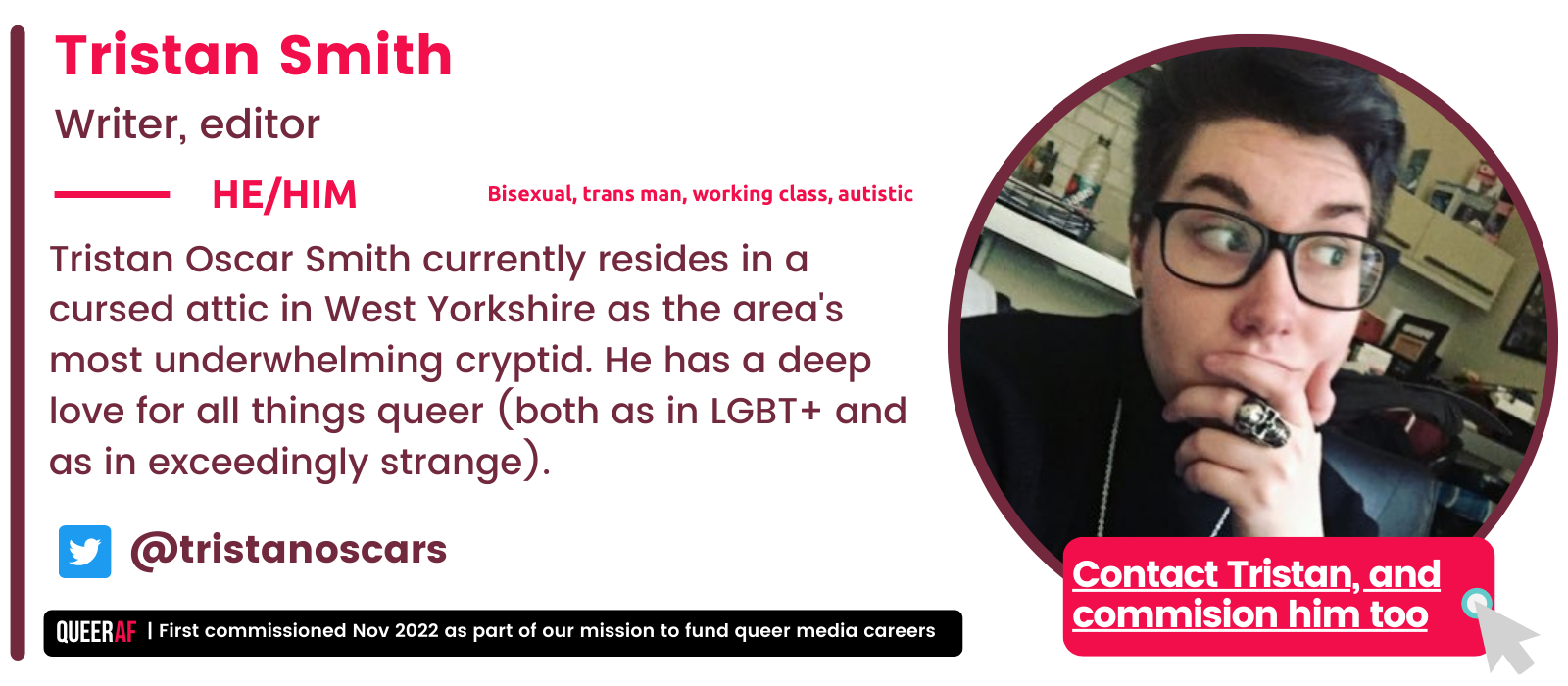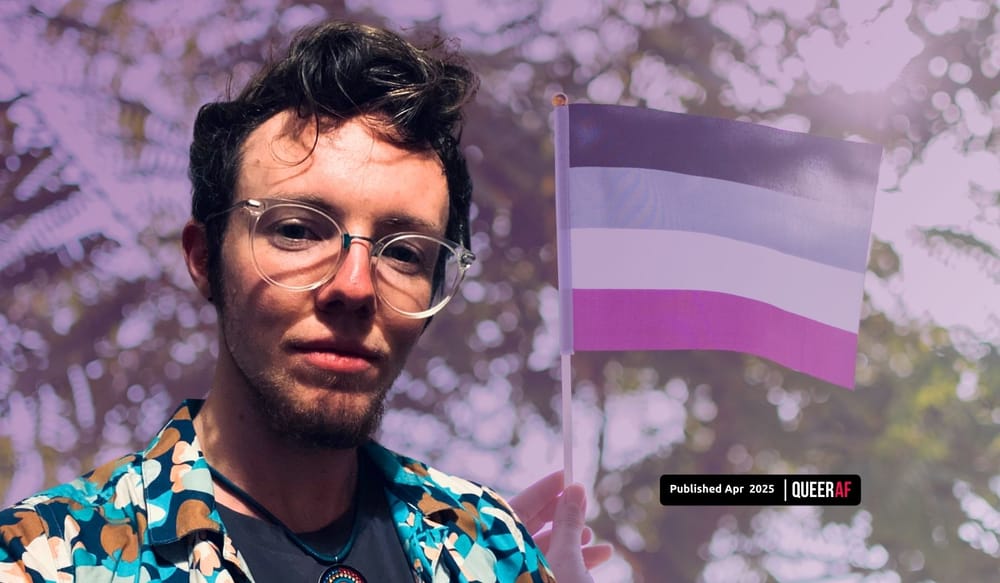
This Trans Awareness Week, I’ve been thinking about entitlement.
It’s often claimed that trans men and transmasculine people are invisible in society, and that more awareness will fix our problems.
I’m not so sure.
Because it’s not trans people we need to raise awareness of. It’s cisgender entitlement to transmasculine bodies and transmasculine lives.
Every time a phrase like “people who menstruate” (or, to use a recent example, “a man or woman whose periods have stopped”) is used, committed anti-trans activists and hobbyist transphobes alike kick up a fuss.
Anti-trans attitudes and policies present trans men and transmasculine people – particularly those early in our transitions – as the property of our cisgender parents, and of a cis-normative society which seeks to control us.
In order to legally and medically transition in the UK, cisgender people have to decide whether we should be allowed to do so.
And testosterone is a controlled substance, leaving us with no reasonable or safe alternative to letting cis people make decisions about our bodies.
I can’t count the times I’ve been asked inappropriate and invasive questions, or had my body grabbed by cisgender people, both men and women.
And simply discussing the gender identity of AFAB historical figures (or even fictional characters) is seen as an insult to women. It’s as if we’re taking something away from them.
What do all of these things have in common?
It’s not trans invisibility. It's cis entitlement.
It’s cis society trying to stop trans men and transmasculine people from stepping outside of the box that we were shoved into at birth. And it’s cis society punishing the ones who manage it anyway.
We’re treated as possessions, not people.
Just like sexual objectification strips away people’s humanity, this possessive objectification dehumanises us.
So where do we go from here?
Trans people and allies can usually recognise overt transphobia in misgendering. In bathroom bills. In attempts to ban trans healthcare.
Conversations are happening about transmisogyny and exorsexism as specific forms of transphobia, with varying degrees of understanding.
Discussion around trans men’s and transmasculine people’s oppression is developing too, as is the language we use to describe it.
But whatever term is used for that oppression, cisgender entitlement to transmasculine bodies and lives is a significant part of the issues we face.
Becoming aware of transphobia in all its forms is the first step in standing up to and dismantling it. That’s the type of awareness we need, this week and every other week.

It's different, we know.
The way QueerAF works with contributors is different from most outlets.
When we work with emerging and marginalised writers who want to build their craft we offer them a skills session with every commission.
The session is designed to put them in control of their edit and to help them understand the reasons behind any changes we suggest. Understanding why, not just what, helps them grow their journalistic flair - and get more commissions.
It's been described as "like therapy, but for writing" - and it's helping.
We ask every creative to rate our process. 90% gave us a perfect score on our communication and approach. The retro, our unique way of editing their work, has an average rating of 9.8/10.
But this approach, which means you get free award-winning content from fresh new voices without outside pressures, is only possible with your support.
So why not take a look at what our creatives say about our work, and find out how to become 100% QueerAF?











